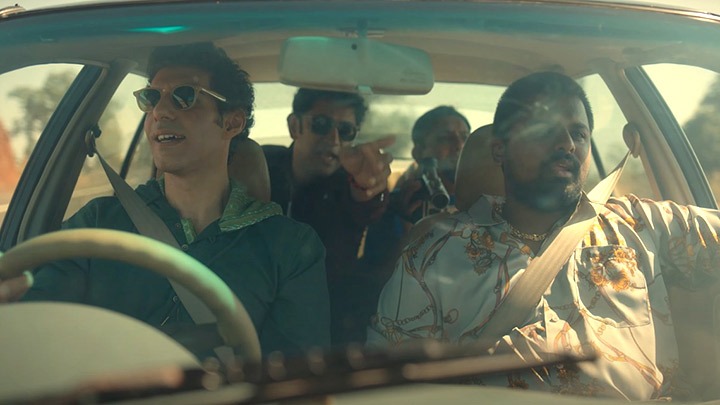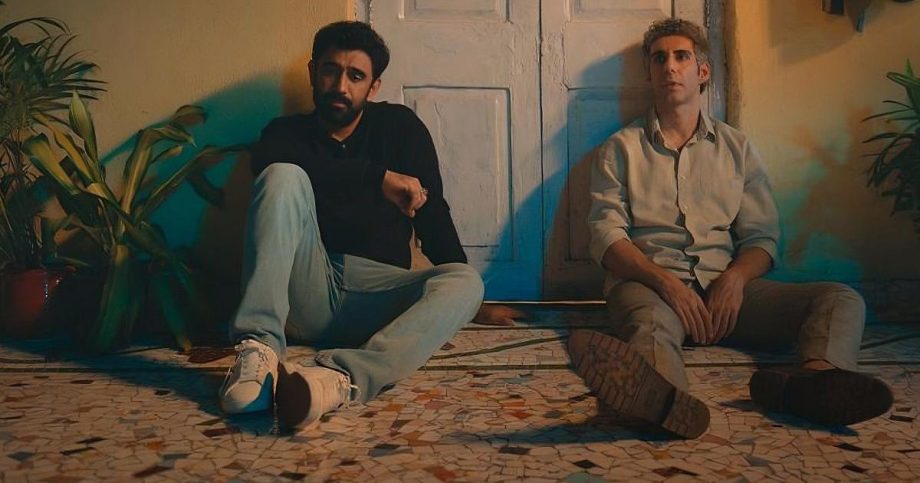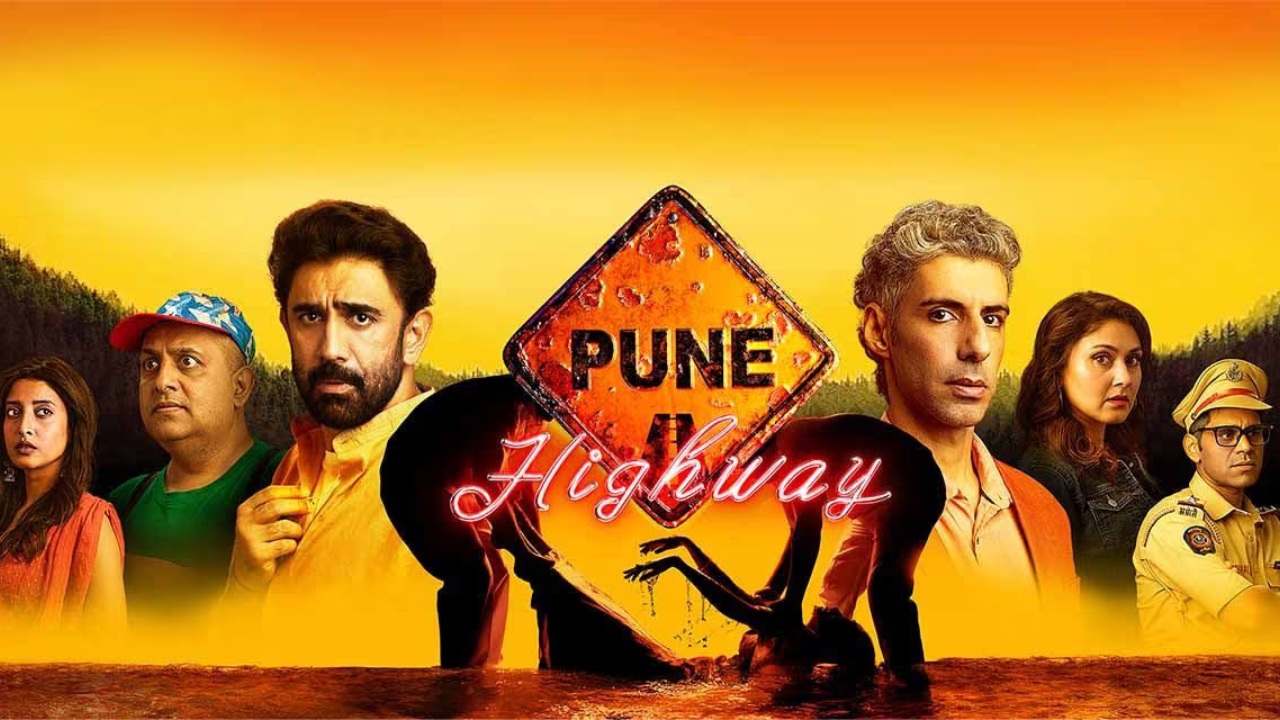Pune Highway, directed with unnerving precision by Rahul daCunha and co-written with Bugs Bhargava Krishna, is precisely a one-of-a-kind cinematic enigma. It is a psychological thriller cloaked in silence and simmering dread. It captivates you at every moment.
Set largely within the confines of a single, nondescript hotel room and the murky pasts that its occupants can no longer outrun, Pune Highway eschews Bollywood’s indulgent tropes and instead clutches tightly to its core strengths: writing that smears deep, performances that breathe, and a narrative atmosphere dense with ambiguity.
We see Amit Sadh playing Khandu, a man caught between paranoia, guilt, and fragile masculinity. In what is perhaps the finest performance of his career, Sadh does not reach for grandiosity. He coils into the role with remarkable restraint, wielding silence like a scalpel. A twitch of the jaw, a gaze that doesn’t meet your eye — his torment is not announced; you feel it at the very glance. He is, in every frame, a man trying to hold himself together while the world he built cracks quietly beneath him.

Yet if Sadh is the still, burning centre of the film, Jim Sarbh is its volatile flame. As always, Sarbh brings with him an almost supernatural energy — his presence electric, his timing surgical, and his craft, as ever, beyond question. There is something about Sarbh’s performances that refuses to settle into predictability. Here, he dances along the edge of chaos, infusing his character with a nervous brilliance that lights up even the quietest corners of the room.

What elevates Pune Highway beyond its genre is its script. Rare is the thriller that trusts its audience so much that it dares to strip away exposition and lean into the theatre of the unspoken. The dialogue here is not in the traditional sense; it is a mix of code, deflection, and revelation in equal measure. But even more telling than what is said is what is not. One can sense the script’s theatrical roots, that it has been reimagined for the screen with a poetic nuance that honours both forms.
The cinematography is appropriately intimate — never showy but deliberate in its choices. Confined spaces and dim corridors become canvases of psychological turmoil, echoing the claustrophobia of fractured relationships and buried secrets.
The supporting cast contributes to the narrative’s tone with brevity. Manjari Fadnnis and Ketaki Narayan showcase performances that pierce you in and out, and then we see veterans like Rajit Kapoor, who grasp the very ground of the film.
While we get to see a lot of cinematic hullabaloos, Pune Highway is a rare composition of quiet thunder. It does not pander. It’s fair to say that it doesn’t entertain you in the conventional sense. It’s not a perfect film — but then, the best ones rarely are. What it is is essential: a reminder that great cinema isn’t about how loudly you speak but how deeply you listen.
IWMBuzz rates it 4 stars.

